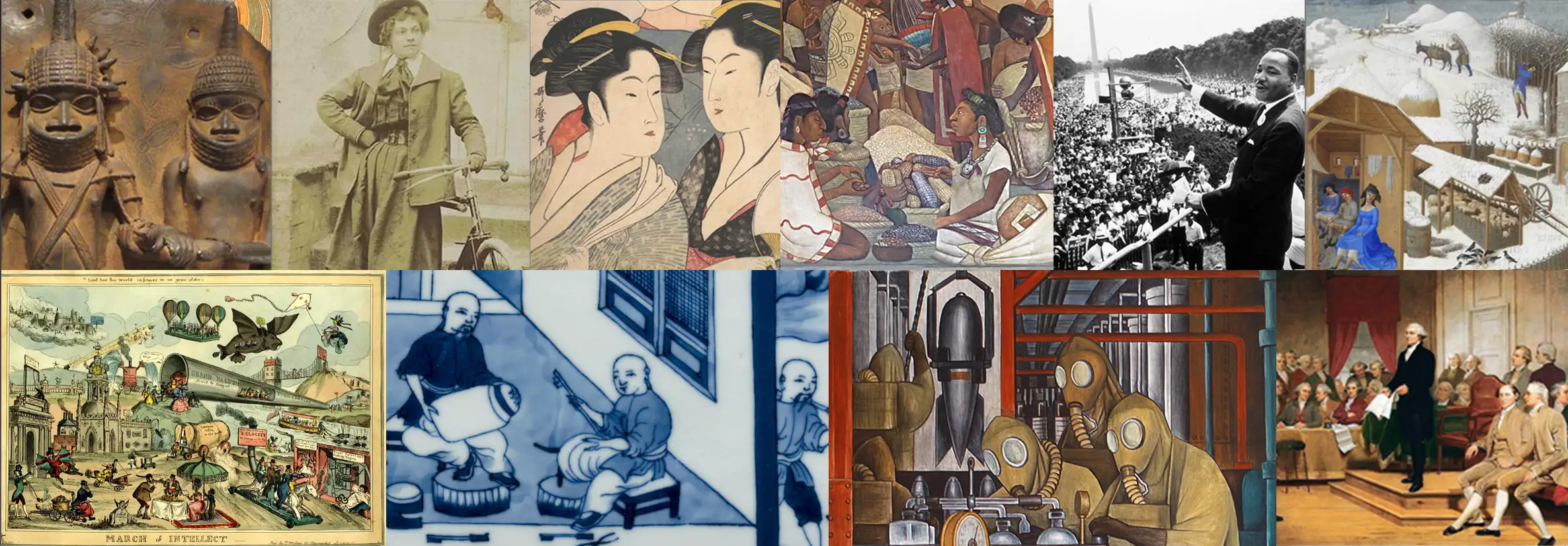Because we like Big Questions
History can certainly make you more knowledgeable and interesting to talk to and can lead to all sorts of brilliant vocations, explorations, and careers – just ask these famous former history majors! But even more important, studying history helps us ask and answer humanity’s Big Questions. In fact, we faculty often tell our students that history is all about questions.
If you want to know why something is happening in the present, you might ask a sociologist, an anthropologist, an economist. But if you want deep background, you ask a historian. We are the people who know and understand the past and can explain its complex interrelationships with the present.
Our faculty approach their work – that is, their research and their teaching – in this spirit of inquiry. We want to know how things happened, why, and what it meant. Some of our Big Questions are quite specific, and indeed specificity – of time and of place – is at the heart of what we do. For example, for our historian of late antique Europe, Jacob Latham, the Big Question is: “What difference did Christianity make to the Roman world after Constantine?” Chris Magra, scholar of the early American Atlantic, asks: “To what extent were colonial Americans capitalists?” Meanwhile, our historian of US/Mexican relations and of the US in the World, Tore Olsson, wants to the history behind the question: “Why is the Global North so much wealthier today than the Global South?”
Some of our faculty pose Big Questions that are more broadly anthropological or philosophical, but such questions become historical when situated in particular places and moments in time: Vejas Liulevicius, who writes about Europe in the era of the World Wars, poses this question: “How did people in the past envision neighboring or foreign peoples?” Meanwhile, Monica Black, a historian of modern Germany asks, “Why do the dead matter to the living?” and Denise Phillips, our historian of the life sciences, poses the mind-blowing, “Why does knowledge matter?”
History is also all about Big Answers. In fact, history could be described as a mode not only of asking but also of answering questions. Historians’ answers are never one-dimensional: in fact, for us it is often a point of pride to say that there is no single answer to any question about the past. Our goal, instead, is to seek out as many different clues about why something turned out the way it did as we are able to uncover and to offer multifaceted explanations for all kinds of historical phenomena.
“We are not makers of history. We are made by history.”
—Martin Luther King, Jr.



